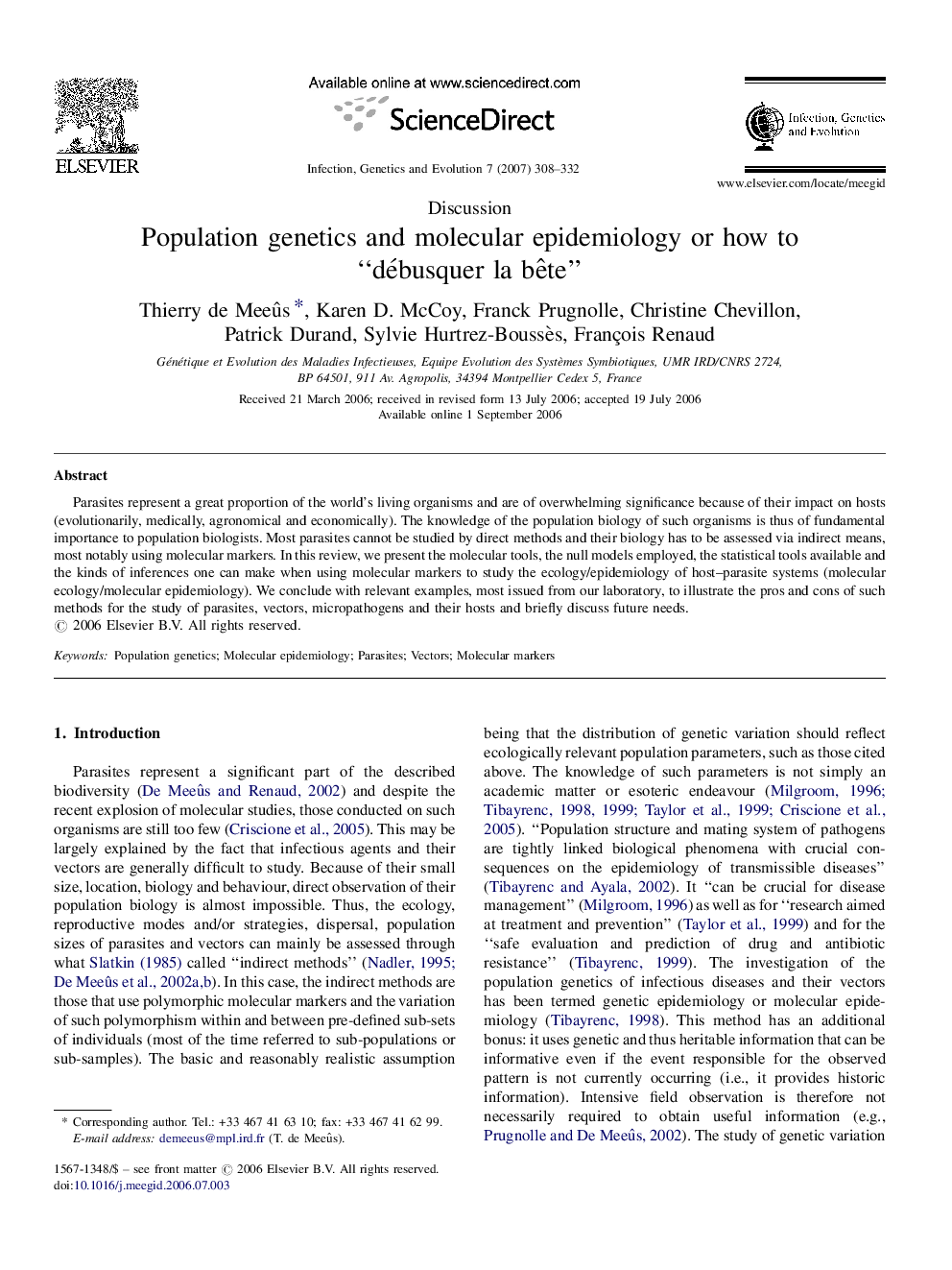| Article ID | Journal | Published Year | Pages | File Type |
|---|---|---|---|---|
| 2823664 | Infection, Genetics and Evolution | 2007 | 25 Pages |
Parasites represent a great proportion of the world's living organisms and are of overwhelming significance because of their impact on hosts (evolutionarily, medically, agronomical and economically). The knowledge of the population biology of such organisms is thus of fundamental importance to population biologists. Most parasites cannot be studied by direct methods and their biology has to be assessed via indirect means, most notably using molecular markers. In this review, we present the molecular tools, the null models employed, the statistical tools available and the kinds of inferences one can make when using molecular markers to study the ecology/epidemiology of host–parasite systems (molecular ecology/molecular epidemiology). We conclude with relevant examples, most issued from our laboratory, to illustrate the pros and cons of such methods for the study of parasites, vectors, micropathogens and their hosts and briefly discuss future needs.
